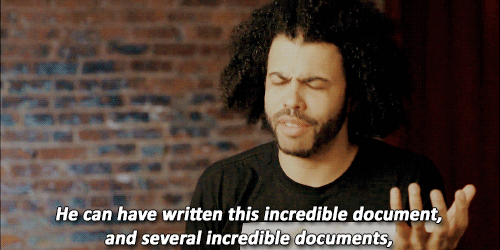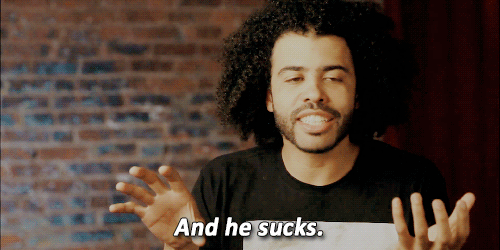Our Heroes Are Only Human
The hard part is learning when to learn from their failings and move on
In Embracing Curiosity, I step away from writing about travel to comment on the bigger journey of life, exploring my faith and politics with curiosity and nuance.
I had listened to Amy Grant for as long as I could remember. My parents owned her early records and we danced in the living room while singing every song on her Unguarded album. My family taped and then watched her Christmas special with then-husband Gary Chapman on near repeat. My first concert was in Casper, Wyoming to see her perform her Heart in Motion tour. I had a poster of her on my wall taken straight from my copy of Brio. I sang “El Shaddai” for my jazz choir audition. I danced with my dad to “My Father’s Eyes.”1
As a Christian girl growing up in the 80s and 90s, Amy Grant had been the perfect example of faith and grace, a woman who appeared to have it all together and successfully live her Christian life in the spotlight.
Then she filed for divorce. I remember my parents’ shock and disappointment that she had forsaken her marriage vows. How could she possibly recover her good name as a Christian woman and role model to young women such as their daughters? Then she quickly got married to Vince Gill, giving the appearance that infidelity may have led to both of their divorces.
It was my first taste of watching the downfall of a personal hero. (More on this in a bit.)2
It seems that my adulthood has been a series of sometimes disappointing, sometimes crushing discoveries about the people I’ve come to admire. Cultural shifts and political turmoil have defined the coming-of-age of every generation, but with the internet and social media tracking every move of people around the planet, secrets have become nearly impossible to keep buried, even for people who have been dead for hundreds of years.
This has become even more true since 2015, a year that many of us finally started to understand what voices on the margins had been telling us for years; stories are more complicated than they appear.
We’ve watched male celebrities fall from grace as they’ve faced one credible sexual assault charge after another.3 We've watched celebrated church leaders lose face over credible accusations of spiritual abuse, sexual abuse, and fraud.4 We've watched political figures change their stances on important issues and even their ethics to maintain positions of power. And as we uncover a more complete version of our country's history, the more complicated the narrative gets around long dead heroes whose stories were not as pure as we were taught in elementary school.
We don’t like to disrupt our views of the way things are and the way we believe they should be. It’s as true for our views of real people as it is for our perspectives on fictional characters. It took me a couple of years before I was willing to finally pick up Harper Lee’s book, Go Set the Watchman. While I struggled with the ethics behind its printing, I had also heard a lot of mixed reviews, especially from those who had a particularly high view of Atticus Finch in To Kill a Mockingbird.5 These readers didn't want their view of a beloved character changed. They wanted to see him as the ideal 1930s anti-racist, not a 1960s racist set on defending an indefensible Southern culture. Their fictional hero suffered an unfavorable fall from grace.
There are a lot of reasons why I love the Marvel Universe, but right at the top is the heroes that are all-too human. It is a reminder we ask our heroes to do too much for us. We ask them to inspire us and be our role models. We emulate their behavior in hopes that their good fortune or even goodness will rub off on us. When they are caught doing wrong, we want to stand up for them because if they have moral failings, then we might discover the same moral failings in ourselves. If we acknowledge their wrongdoing, we are left with a void, unsure of where to look for inspiration.
But there is another option. We should hold our heroes lightly and learn that our self-worth is not tied up into theirs. When they disappoint us, we should call them out on their wrongdoing and refuse to just brush it aside. We can acknowledge the role that hero played in our past and determine that it’s time for us to move on. And it’s ok to admit that it’s complicated, something that Daveed Diggs pointed out when the original Hamilton cast participated in a documentary on the real people who inspired the musical, and he had to speak about his own character, Thomas Jefferson.
Like many, the last eight years have been a real challenge for me. Honestly, I’ve gotten really tired of my childhood heroes disappointing me. But the bigger disappointments haven’t been the realization that the real-life Bill Cosby wasn’t like the father I had watched on television or that Kevin Spacey was giving his brilliant Usual Suspects performance at the same time as he was sexually assaulting young men. They’ve been the people I interact with on a daily basis who I’ve seen sucked into an “us vs. them” quest for power and influence. It’s the loved ones who I’ve watched excuse the bad behavior of their heroes while highlighting the lesser sins of those they despise. It’s the ones who can’t hold two things to be true at the same time: yes, this unnamed person did tremendous good and changed the world for the better, and they were deeply flawed human beings who hurt others on their way to that end.
Because growing up means realizing that our heroes are complicated and making carefully reasoned decisions on what we will and will not tolerate from those we admire. Growing up means we move on when we determine that the personal and social cost is too great. Growing up means admitting that, maybe we too, were wrong.
Which brings me back to Amy Grant, a woman who wrote and sang part of the soundtrack of my childhood and adolescence.
I was in college by the time her divorce had been finalized. While I still firmly believed in the sanctity of marriage and looked forward to someday getting married (although I still wasn’t sure my boyfriend at the time was the right candidate), my disillusionment was short lived.6 I never stopped listening to her first Christmas album and it comes out every year on the day after Thanksgiving. I still dance and sing to her songs when I hear them played in the store. And over the years, I've come to admire the way she has demonstrated the benefits of a healthy marriage with her second husband, Vince Gill. While I've moved away from seeing people as my heroes, I can say that I still admire her from afar.
Because over the years I’ve come to see her as an imperfect human being doing the best she can to make the world a better place for everyone, and that’s really the best I can expect from the people I admire most.
Order my new book!
I’ve written a memoir collection of essays based on several of my blog posts from the past seven years. It is available for purchase on Amazon.com.
And if you do purchase, please give it a favorable review on Amazon and Goodreads, or any other book tracking app that you might use.
Please “like” by clicking on the ❤ and share this post with your friends so that others can join me on the journey.
Two years after her divorce from Gary Chapman had been finalized.
Also, please enjoy the piece directly below, written by a friend who is doing research on Contemporary Christian Music.
And yes, far too many of them have somehow made career comebacks while their victims have suffered public shame.
And again, far too many of those leaders have found new flocks to mislead while leaving behind a trail of ashes.
I still struggle with the ethics of the book’s printing, because there was a reason she never wanted it printed. But I did enjoy the book and could see the rough draft of TKAM forming through its pages. As for those who are in love with Atticus Finch, they probably need to sit down and read the book again. Gregory Peck turned Atticus into a hero in the movie. But the book was about Scout. It was always about Scout. And I will stand by that position until the day I die, thank you.
I’ve been married to that boyfriend for 21 years now.









As always, your essay is clear and thoughtful. I have a friend who is further right on the political spectrum than I am, and she named her pets Scout, Atticus and Boo. The book and movie surely created a "super hero", but the moral value of what it tells us is a goal that we should continually strive for.
Great post, thanks for your thoughtfulness!